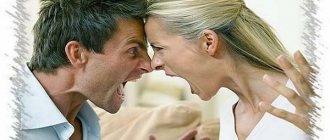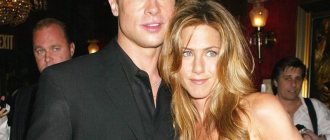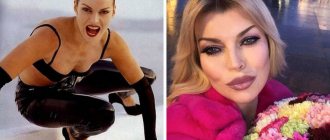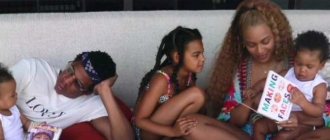You most likely will not be able to instill a love of sports in your children if you are not an athlete yourself, if sports activities are alien to you.
Children do not like when something is imposed on them, when they are forced to perform some actions, go to classes and to the gym. The only way is to create in children a sincere desire to engage in sports on their own initiative. And for this we need your example.
A sporty and strong family is possible only when both adults and children experience real pleasure and joy from physical activity. The hormone of joy is an extremely pleasant thing, and it is important to ensure that it is produced during family sports activities.
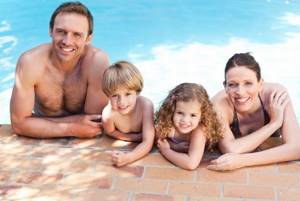
The importance of sports for children
Physical education in childhood is especially useful. Physical education lessons are present in all schools. Thanks to simple physical exercises, the child receives comprehensive development, forms the will to win, and strengthens character. On the other hand, not all children can derive pleasure from such a useful procedure, and parents have to work on this factor.
You should show by example and deed that sport is good, it’s pleasant, it’s fun, it’s useful. Collective sports activities of children and parents are the best way to promote such goals, and sports begin to be instilled from infancy. A sports family is like a single team, a single team in which communication and interaction takes place between participants, in which the child feels part of the whole.
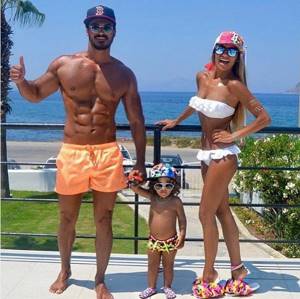
Forms of physical education in the family
The physical development of a child at home is based on the following principles:
- Systematicity and continuity, daily execution of exercises.
- Gradual increase in load. You need to start small, giving more complex exercises over time.
- Age appropriate.
- The child must understand why he is doing gymnastics.
- Repetition of what has been learned to consolidate skills.
- Accessibility and visibility. The best way to teach children is to do the exercises with them.
Forms of physical education in the family:
- Joint gymnastics in the morning before kindergarten or school. Light exercises will help you wake up and put you in a positive mood. Approximate composition of the exercise:
| Exercise | Progress |
| Walking in place | Lasts about 1 minute. |
| Arm stretching | Performed slowly without jerking. Up to 8 reps. |
| Exercises for the torso | Tilts, turns left - right, up to 10 repetitions. The pace is measured. |
| Leg exercises | Squats, lunges forward, left - right, lifting, bending. Up to 8-10 repetitions. The pace is average, it can be gradually accelerated. |
| Exercises for arms and upper body | Arms up and down, “mill”, elbow bending and extension. Up to 6-10 repetitions. Perform at an average pace with acceleration. |
| Jumping | Up to 30 times at a fast pace. |
| Run | 30 seconds, gradually speeding up. |
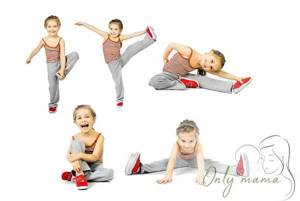
- Hardening using accessible methods.
- Active outdoor activities - any exciting sports games. This could be cycling, skating, skiing, rollerblading - anything that brings pleasure.
- Long walks are an affordable and easy way to improve your health. While walking, you should add overcoming natural obstacles.
- Hiking trips. There are hiking programs even for preschoolers with easier routes. Overcoming challenges as a group builds a sense of community, perseverance and endurance.
- Exercise for a few minutes. When a student is studying homework, he needs to do a simple warm-up every half hour.
- Conversations about the importance of sports, keeping your body healthy and improving movement skills.
Important! Any forms of physical education of a child in the family should be varied and interesting. Only a positive attitude will help to form a love for sports and a healthy lifestyle.
Parents are an example for a child
You are unlikely to raise a sports fan if you sit in front of the TV or computer all day. Parents who stay on the couch and enjoy it are an obvious example for kids.
It is clear that we all live at a frantic pace, that we are all working, and in our free moments we want to relax, but... You will still have to overcome your laziness and devote some time to family activities. There is no other way to introduce sports into the lives of the younger generation.
Moreover, one should start from an early age, forming in a boy/girl a positive attitude towards sports, towards sharing activities, towards active and energetic activities.
The parent's behavior model is an example for the child. A sports family is unthinkable and impossible without the full involvement of all its members.
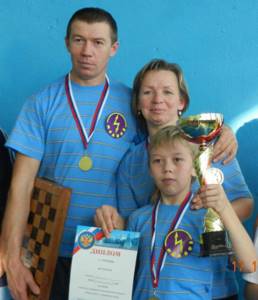
The importance of children's physical education
The physical development of a child in the family is extremely important, despite the fact that many children are on the move all day. We are not talking about physical activity as such, but about systematic, organized activities.
Important! A systematic approach to physical education allows all muscle groups to develop, which does not happen with monotonous movements - running or walking. Uneven load on the muscles and skeleton leads to developmental delays.
Complexes of exercises developed by specialists have a positive effect on all systems and organs:
- The brain is more actively supplied with oxygen, and the performance of the central nervous system increases. This in turn leads to an improvement in intellectual, mental abilities and mental processes.
- Lung volume increases.
- The functioning of the cardiovascular system improves.
- Metabolism accelerates.
- The body recovers spent energy faster.

During preschool childhood, character, attitude towards the world around us and the foundation of health are formed. The role of the family in the physical education of a preschooler is fundamental. If there is no joint sports recreation with parents, then children will not be interested in competitions and gymnastics.
The most famous sports families
Recently, Michael Schumacher's 16-year-old son, Mick, made his racing debut as a driver for the Dutch team Van Amersvoort, which competes in the Formula 4 series. Let's remember other famous families in which children followed in the footsteps of their sports parents.
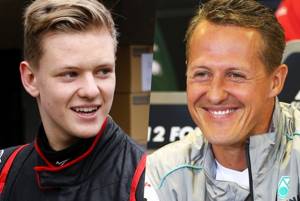
16-year-old Mick is already racing in Formula 4, but the seven Formula 1 titles won by his dad are unlikely to be his. According to experts, the guy still has work to do and improve his skills. However, the one traveling will master the road.
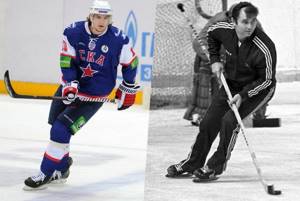
St. Petersburg SKA hockey player Viktor Tikhonov Jr. suffered two heavy losses within a year and a half. In August 2013, he lost his father Vasily Tikhonov, who fell from the fourth floor. And in November last year, after a long illness, his grandfather Viktor Tikhonov Sr., the creator of the famous “Red Machine” - CSKA Moscow, and coach of the USSR national team, died.
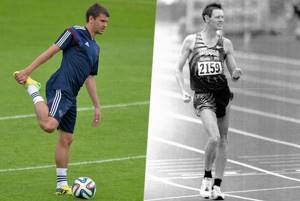
Georgy Shchennikov is a football player for CSKA Moscow, playing in the position of left back. His father, Mikhail, was also a member of the Central Sports Club of the Army, but was involved in athletics and even won a silver medal at the 1996 Olympics in 50-kilometer race walking.
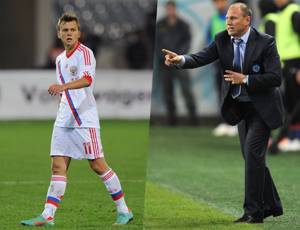
Spanish Villarreal football player Denis Cheryshev is perhaps the main young hope of Russian football. The rights to the player belong to Real Madrid, whose children's team was once coached by Denis' father Dmitry, who himself once played for the Russian national team. This is how Cheryshev Jr. got into Spanish football.
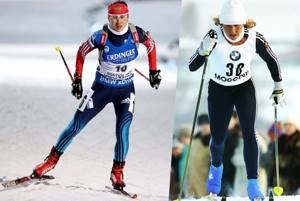
Three-time Olympic champion Anfisa Reztsova has four daughters. Two of them, Daria and Christina, followed in the footsteps of their legendary mother, who at one time was involved in both biathlon and cross-country skiing. Last season for Daria was the best in her career.
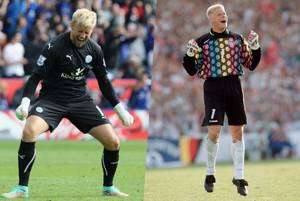
Former Manchester United goalkeeper Peter Schmeichel made history by winning three trophies with the Red Devils in the 1998/99 season. His son Casper, surprisingly, began playing football in the camp of United's arch-rival Manchester City. However, 28-year-old Kasper left him long ago and now plays for Leicester City, which plays in the Premier League.
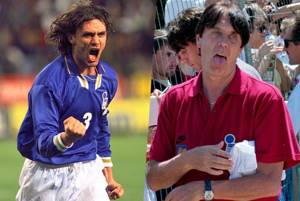
The Maldini family is a cult family for fans of Milan and the Italian national team. Father Cesare spent almost 15 years in the Rossoneri as a player and coach, his son Paolo played for the red-blacks for almost a quarter of a century and won all possible trophies. Now the third generation of Maldini is growing in the Rossoneri youth team - Christian and Daniel. If one of them makes it to the base, they will be able to take the 3rd number, forever assigned to Paolo.
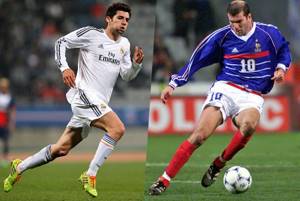
If Anfisa Reztsova has four daughters, then Zinedine Zidane has four sons. And all four play for Real Madrid. Of course, for teams of different ages. The eldest, Enzo, has already grown into the reserve team, coached by Zinedine. Three others - Luca, Theo and Elias - are involved in children's teams.
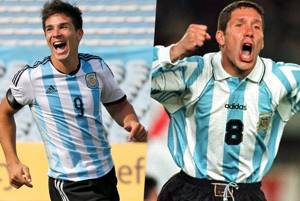
19-year-old Giovanni Simeone is still building his career in the Argentine River Plate, and his legendary father Diego successfully coaches Atletico Madrid. It is quite possible that soon the father will take his son closer to him.
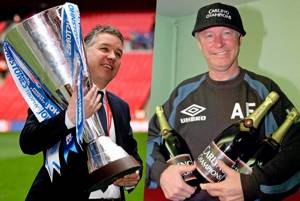
At the encouragement of Sir Alex, his son Darren went through the Manchester United academy and even played a little for the Red Devils. However, he did not have any special football talent, and therefore he had to go to the lower leagues. Darren later became a coach, but not at the top level, like his father Alex, working with the Peterborough and Preston North End teams. Often Ferguson Jr. was accused of using the resources that his father possessed.
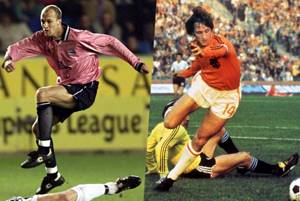
The fate of Jordi Cruyff, the son of the legendary Johan, developed in a very similar way. His dad taught him at Ajax, then took him to Barcelona, and then helped him get a job at Manchester United, where Yordi played only 34 matches in four years. At the end of his career, Cruyff Jr. even moved to Metallurg Donetsk and Malta, and now he works as the sports director of Maccabi Tel Aviv. His father holds a similar position in the Mexican Guadalajara.
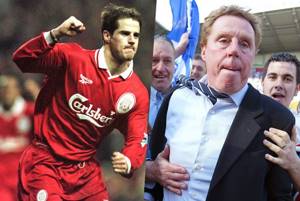
Jamie Redknapp became famous as a member of the “Spice Boys” group, a “party” of several English football players from Liverpool in the 90s of the last century. Despite their undeniable talent, Redknapp Jr. and his comrades were never able to achieve serious success on the football field. Jamie stopped playing at the age of 31 due to a serious injury, and now works on television. His father, Harry, is a famous English coach and planner, who worked, in particular, at Tottenham and Southampton, and is also said to have contributed to the liquidation of Portsmouth, where Arkady Gaydamak was the owner. Rumor has it that the investigation into Redknapp Sr. for concealing income was dropped due to the fact that the judge who heard Harry was unable to understand his heavily accented speech at the hearing.
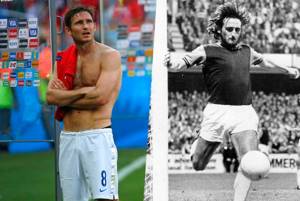
Both Lampards are iconic footballers for England and London. The younger became a legend for Chelsea fans, the second earned respect at West Ham. Interestingly, Harry Redknapp is Lampard Jr.'s uncle, and Jamie Redknapp is his cousin. His father never wanted a football career for Frank and made sure that his son studied well. The son graduated from school with honors, but still became a footballer and is now the owner of the highest IQ among British players.
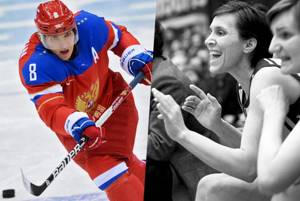
Alexander Ovechkin's mother Tatyana is a famous former basketball player and two-time Olympic champion. The passion and will to win were passed on to the hockey player with his mother’s milk, but Alexander cannot yet boast of top-ranking Olympic medals.



